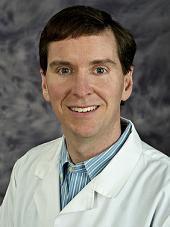 Thomas Lardner, MD, is the medical director of rehabilitation services at Somerset Medical Center in Somerville, N.J. He is board-certified and fellowship trained sports medicine specialist.
Thomas Lardner, MD, is the medical director of rehabilitation services at Somerset Medical Center in Somerville, N.J. He is board-certified and fellowship trained sports medicine specialist. Q: Why did you decide to specialize in sports medicine?
Dr. Thomas Lardner: As a former athlete, I felt it would be the best way to stay involved with other athletes, and sports. I really enjoy caring for the whole athlete — physically, medically and psychologically.
Q: What are some of the biggest changes in orthopedic medicine you have seen since you first began to practice?
TL: Since I first began to practice, I’ve seen advancements in surgical techniques, particularly through the arthroscope, which allow for faster recovery after procedures. There have also been a lot of changes with musculoskeletal ultrasound, used for fast, accurate diagnosis of orthopedic complaints and precise delivery of injectable medications.
Q: How has working with athletes shaped your view of the field of sports medicine?
TL: I used to think that all of my patients would be "young and healthy." However, many of my patients are over the age of 50, and are very active, if not involved in organized athletics. These patients can present a challenge, particularly if they have coexisting medical ailments, but I actually appreciate these patients more, because of their perspectives and their desire to remain competitive.
Q: What advice do you have for physicians just entering the field of sports medicine?
TL: As with any profession, be sure that you like what you do. Sports medicine can require a lot of nights and weekends spent in game coverage, which is where a lot of your visibility comes from. Never stop learning, read, ask questions and get your hands on as many cases as you can. There is no substitute for repetition in mastering the physical exam.
Q: What is the best strategy for providing patient-centric care?
TL: Embrace the team approach, and always be willing to learn from other practitioners, whether they be trainers, therapists or orthopedic subspecialists. Listen to the patients, they know their bodies, particularly high-level athletes, who are really "in tune" and know when something isn't quite right.
A series of articles featuring orthopedic surgeons on issues ranging from personal background to current research developments is published weekly. We invite all orthopedic surgeons and sports medicine specialists to participate.
If you are interested please email cpallardy@beckershealthcare.com.
More Articles on Sports Medicine:
Building a Strong Sports Medicine Program & Online Presence From Scartch: Q&A With Dr. David Geier of MUSC Sports Medicine Program
Orthopedic Collaboration & Customizing Patient Care: Q&A With Dr. Robert Tait of The Orthopaedic Institute of Henderson
The Engineering of Better Joint Replacement Outcomes: Q&A With Dr. Geoffrey Westrich of Hospital for Special Surgery


